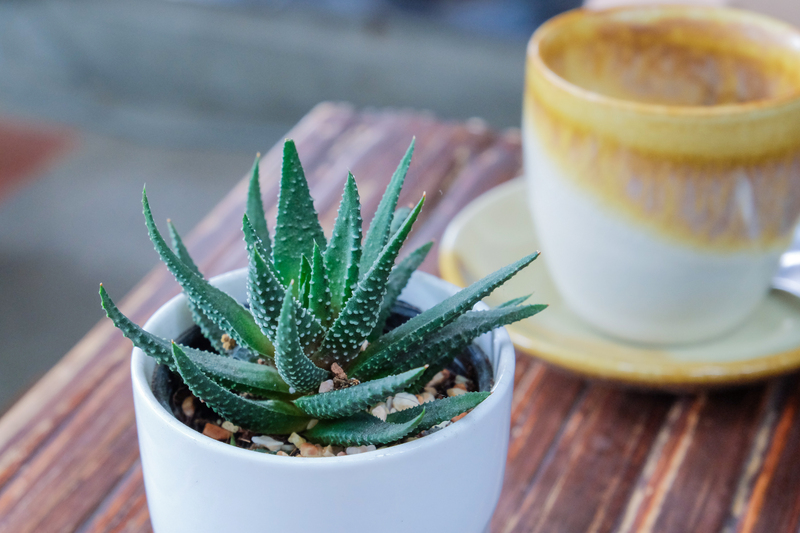Tools That Every Gardening Enthusiast Should Own
Posted on 25/06/2025
Gardening is more than a leisure activity; it's a rewarding passion that brings you closer to nature, improves your well-being, and transforms your outdoor space into a lush paradise. However, whether you're a novice or a seasoned green thumb, having the right gardening tools can make every task easier, more enjoyable, and more effective. In this comprehensive guide, we'll explore the must-have garden tools for enthusiasts, why each one is important, and how to choose quality equipment for a thriving garden.
Why Quality Gardening Tools Matter
Gardening requires patience, effort, and persistence, but with the correct implements, you can minimize physical strain and time spent on activities like digging, weeding, and pruning. Well-designed tools not only enhance efficiency but also help to safeguard your plants and soil, supporting sustainable gardening practices. Furthermore, they can last for years--sometimes generations--when properly cared for, turning gardening into a joyful and environmentally conscious pursuit.

Top Tools Every Garden Lover Should Have
Let's delve into the most important gardening tools for enthusiasts and their uses. Whether you're tending a vegetable patch, flower beds, or container gardens, these tools are considered indispensable by professional gardeners and hobbyists alike.
1. Gardening Gloves
Never underestimate the importance of a good pair of gloves. Gloves are essential for protecting your hands from thorns, blisters, chemicals, and soil-borne bacteria. For tasks like planting, weeding, and pruning, gloves provide both safety and comfort. Choose gloves that are durable, breathable, and fit snugly to your hands. Options like leather or latex-coated gloves offer resistance to punctures and moisture, ensuring your hands stay protected during prolonged gardening sessions.
- Tip: Always wash your gloves after use and let them dry completely to prevent mold or odor buildup.
2. Hand Trowel
A hand trowel is one of the most versatile gardening tools for hobbyists. It is perfect for planting, transplanting seedlings, and digging out weeds. High-quality stainless steel trowels offer durability and a sharp edge for easier soil penetration. Look for ergonomic handles that reduce wrist strain.
- *Pro tip*: Invest in a trowel with measurement markings on the blade for precise planting depth.
3. Pruning Shears (Secateurs)
Pruning shears are vital for maintaining plant health. These sharp, compact cutters help you trim dead or overgrown branches and shape shrubs or small trees. Bypass pruners are ideal for live plants, while anvil pruners work best for dry, woody stems. Ensure your pruners can be easily dismantled for sharpening and cleaning.
4. Garden Fork
A garden fork is a sturdy, multi-functional tool that helps in loosening, lifting, and turning soil. Its sharp tines penetrate hard ground more efficiently compared to a spade, making it indispensable for breaking up compacted soil, aerating lawns, or integrating compost and organic matter.
5. Spade
A spade is a classic in the collection of tools every gardener should own. With its flat, rectangular blade, it's perfect for digging holes, edging beds, and moving soil or compost. Choose one with a reinforced shaft and comfortable grip, as this tool often endures heavy use.
6. Garden Hoe
The hoe is a time-honored tool for weeding and cultivating soil. There are various styles (draw, stirrup, and Dutch hoes) suited for different tasks, such as chopping weeds or preparing seedbeds. A hoe with a long handle allows for extended reach, reducing the need to bend as you work.
- Tip: Keep your hoe sharp! A sharpened edge can cut through weeds effortlessly.
7. Watering Can or Hose
Proper hydration plays a crucial role in plant health. A sturdy watering can with a removable rose head gives you precision and gentle watering, crucial for young plants or indoor gardens. For larger spaces, a hose with adjustable nozzles and a spray wand ensures you cover more ground with less effort.
- Look for hoses that are kink-resistant and made with safe, lead-free materials.
8. Garden Rake
A garden rake is essential for cleaning up fallen leaves, spreading mulch, or leveling soil. Steel head rakes are durable for heavy-duty work, while plastic or bamboo variants offer lighter options for leaf gathering. Adjustable rakes provide versatile head widths to access tight spaces.
9. Wheelbarrow or Garden Cart
Transporting heavy loads of soil, compost, plants, and tools is much easier with a sturdy wheelbarrow or garden cart. A good wheelbarrow should be well balanced, easy to maneuver, and have pneumatic tires for rough terrain. Garden carts often have multiple wheels for added stability.
- Save your back: Use a cart for bulky or awkward materials like branches, stone, or fertilizer bags.
10. Loppers
For branches too thick for hand pruners, loppers provide the extra leverage needed. They are ideal for trimming trees, large shrubs, and reducing overgrowth. Choose bypass loppers for live wood and anvil loppers for dry, dead branches. Look for lightweight, extendable handles for increased reach.
11. Hori Hori Knife
If you're seeking a truly versatile garden enthusiast tool, the Japanese hori hori knife is invaluable. With a sharp, serrated edge and a concave blade, this tool functions as a digger, weeder, cutter, and measuring device. It's perfect for dividing plants, cutting roots, or scooping soil.
12. Garden Scissors
Garden scissors are a lightweight companion for deadheading blooms, harvesting herbs, or snipping string and twine. They offer precision and control where a larger pruner would be cumbersome. Ensure they're stainless steel for rust resistance and easy cleaning.
Additional Highly Recommended Garden Tools
- Kneeling pad or kneeler seat: Protects your knees and back during prolonged gardening sessions.
- Soil pH tester: Monitors the acidity or alkalinity of your garden soil for optimal plant growth.
- Plant labels and markers: Helps identify seedlings and track plant varieties.
- Garden twine or ties: Supports and trains growing plants.
- Compost bin: Encourages sustainable disposal of garden and kitchen waste and produces nutrient-rich compost.
- Spray bottles: Perfect for misting delicate seedlings or applying liquid fertilizer.
What to Look for When Choosing the Best Gardening Tools
1. Material Quality
Opt for stainless steel, carbon steel, or high-grade aluminum, which resist corrosion and maintain sharpness. For wooden handles, ash or hickory is sturdy and shock-absorbing. Avoid flimsy plastic handles that may crack under pressure.
2. Comfort & Ergonomics
*Gardening often requires repetitive motions.* Ergonomic handles with soft grips and non-slip coatings can prevent blisters and reduce fatigue. Test how tools feel in your hand before purchasing or look for models with adjustable handle lengths.
3. Maintenance & Longevity
Quality gardening equipment can last for years with regular maintenance. Keep blades sharp, clean tools after use, and store them in a dry place to avoid rust. Some tools come with lifetime warranties, which can be a good indicator of enduring craftsmanship.
4. Suit Your Garden Size and Type
Select tools that match your gardening space--compact for balcony or indoor gardens, robust for larger yards or allotments. Multi-purpose tools save storage space and often come in handy for a range of tasks.
Maintaining Your Tools for Long-Lasting Use
Just as plants require care, so too do the garden tools you rely upon. Here are some essential care tips:
- Always remove dirt and sap from tools after each use.
- Dry tools thoroughly to prevent rust and corrosion.
- Sharpen blades regularly with a whetstone or file.
- Oil hinges and moving parts for smooth operation.
- Store in a dry, covered space--preferably hung up or in a tool rack.
With basic maintenance, your gardening utensils will remain reliable, safe, and a pleasure to use season after season.

Modern Innovations: Smart Gardening Tools
Technology has revolutionized many aspects of gardening. Smart irrigation systems, moisture meters, and weather sensors can help you optimize water and energy use. Cordless electric pruners, battery-operated tillers, and digital soil testers make garden care easier than ever. While not essential for beginners, these advanced tools can bring efficiency and precision to your gardening routine.
Conclusion: Equip Yourself for Gardening Success
The journey to a flourishing garden begins with the right set of gardener's tools. Whether you focus on flowers, vegetables, or ornamental shrubs, investing in high-quality, comfortable, and reliable equipment ensures your efforts yield beautiful results. Start with the essential implements highlighted above--gardening gloves, trowel, pruners, spade, fork, hoe, watering apparatus, rake, cart, loppers, and specialty tools like the hori hori knife--and supplement with other accessories as your skills and garden expand.
*Gardening is a labor of love, and the right tools are your best allies.* Take the time to research, invest wisely, and care for your equipment. Your plants--and your back--will thank you!
Embrace these recommendations, and you'll be well-equipped for a lifetime of rewarding gardening adventures!
Latest Posts
Mastering the Craft of Container Gardening
Eco-Friendly Gardening with Canine Companions
Advanced Techniques for Stunning Hedge Sculptures

